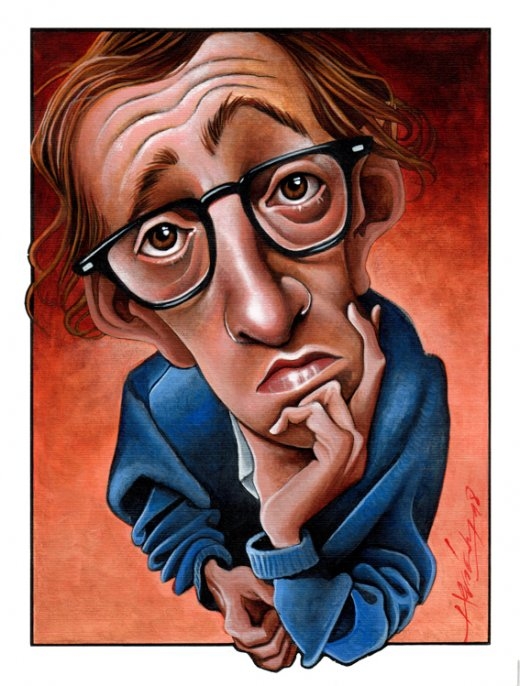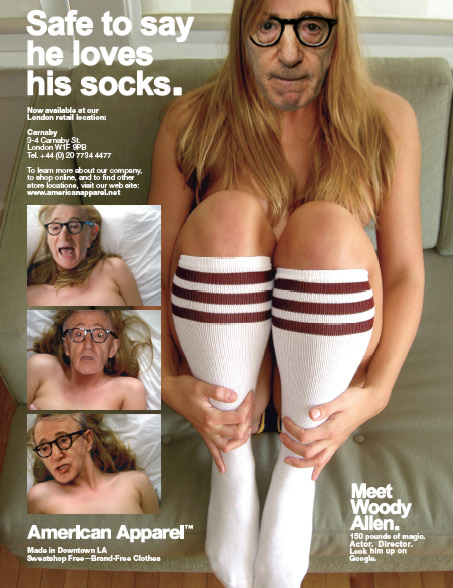
NEW YORK TIMES: So much for the trial of the century: a lawsuit filed by Woody Allen against American Apparel was quickly settled on Monday morning for $5 million, Reuters reported. Mr. Allen was suing the clothing maker for using without permission an image of him from “Annie Hall,” in which he was dressed as a Hasidic Jew, on billboards that appeared in New York and Los Angeles and in online advertisements.
The weeks leading up to Monday’s brief courtroom action had been tense. In a deposition in December, Mr. Allen said the ads were “sleazy” and “infantile,” according to The Associated Press. Stuart Slotnick, a lawyer for American Apparel, told The A.P., “Certainly, our belief is that after the various sex scandals that Woody Allen has been  associated with, corporate America’s desire to have Woody Allen endorse their product is not what he may believe it is.” Mr. Slotnick indicated at one point that he planned to call Mia Farrow, Mr. Allen’s former companion, and Soon-Yi Previn, Ms. Farrow’s daughter and Mr. Allen’s wife, as character witnesses, then said his defense would focus on issues of free speech and fair use. MORE
associated with, corporate America’s desire to have Woody Allen endorse their product is not what he may believe it is.” Mr. Slotnick indicated at one point that he planned to call Mia Farrow, Mr. Allen’s former companion, and Soon-Yi Previn, Ms. Farrow’s daughter and Mr. Allen’s wife, as character witnesses, then said his defense would focus on issues of free speech and fair use. MORE
AMERICAN APPAREL: Naturally there is some relief of not having to go through a trial but I also harbour a sense of remorse and sadness for not arguing an important issue regarding the first amendment, particularly the ability of an individual or corporation to invoke the likeness of a public figure in a satiric and social statement. MORE
[Woody Allen – Stardust Memories – Opening Scene]
RELATED: Allen’s development in the eighties, his rate of work, and the sophistication of narrative were all seemingly devoted to ideas and attitudes against the grain of that decade. Yet Allen’s audience relied on urban yuppies, and his films only fostered that group’s self-satisfaction. He has tried darker views — in Stardust Memories and Crimes and Misdemeanors — and he has become very skilled with extensive, seething social contexts in which one piece of behavior is made more complex by the doings of others. He has fascinating ideas and ambitions as a screenwriter. Yet which Allen film challenges or threatens us, or burns into our memories? The films may run together – are we certain where that joke or this meeting occurred? Sometimes the context is so large as to be blurred, escape and slipperiness become more facile. There is something in Allen that always makes fun of ego, privacy, and obsession, and so with all his proclaimed inwardness he seems fearful of letting characters possess large inner lives. He makes many cameos of loneliness, but these are too often cute snapshots rather than tributes to an intractable condition. MORE

